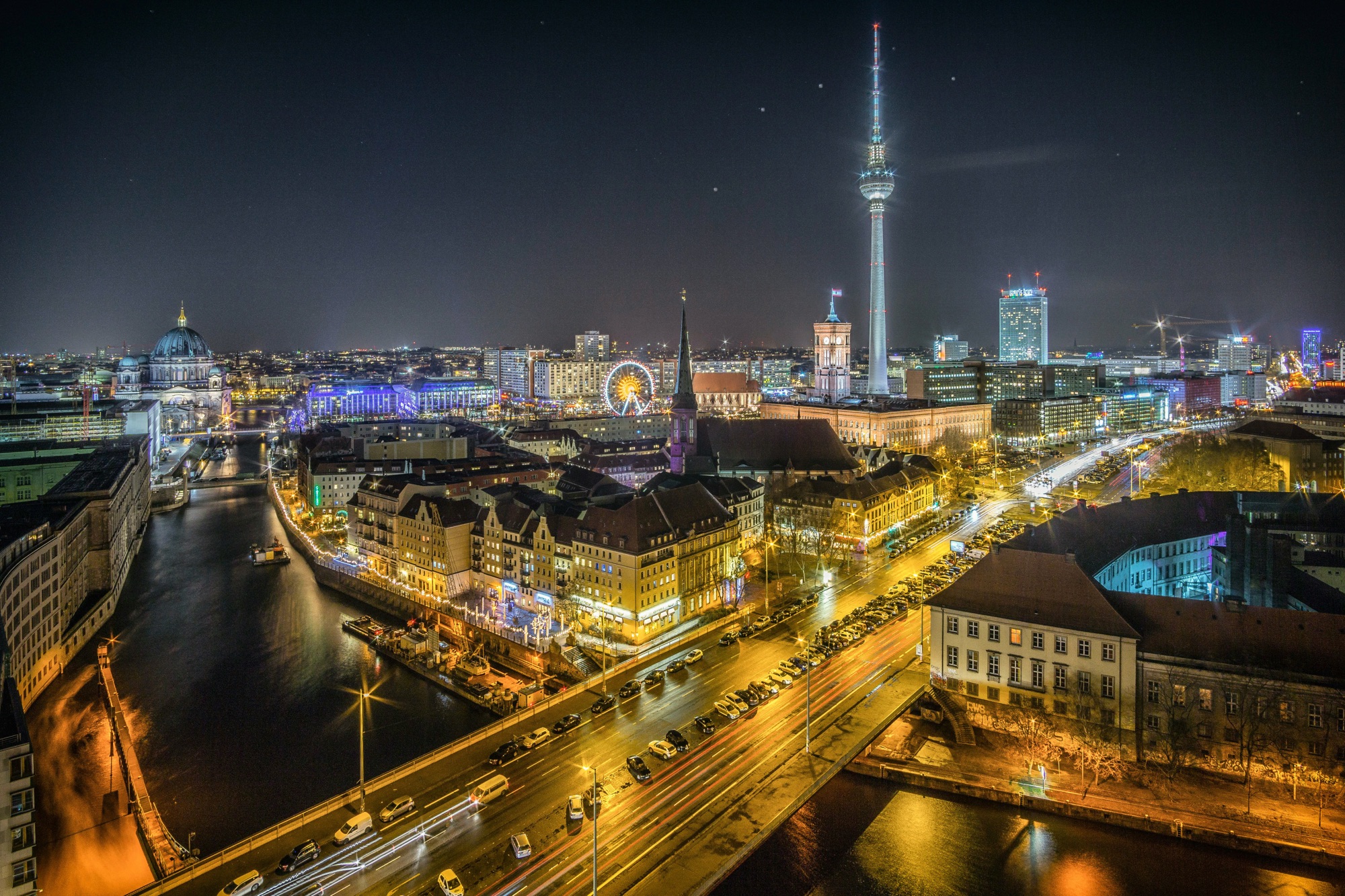Germany stands as one of the most powerful and influential countries in the world, a title that is backed by its formidable economy, strategic military investments, and a profound cultural legacy that stretches across centuries. This influence is not limited to Europe but spans the globe, making Germany an indispensable player in international affairs. To fully understand how powerful Germany is, it is crucial to explore its economic, military, and cultural power in detail. Each of these areas contributes significantly to Germany’s overall standing as a global leader.
Germany’s Economic Power: The Engine That Drives Europe
1. Europe’s Largest Economy
Germany holds the title of having the largest economy in Europe and the fourth largest economy in the world, with a Gross Domestic Product (GDP) of approximately $4.2 trillion in 2023. Its economy is often described as the “economic engine of Europe,” powering not only its own prosperity but also that of the European Union (EU). Germany’s robust economy is built on a strong industrial base, innovation, and an emphasis on high-quality manufacturing. The country is renowned for producing premium products in industries such as automotive, machinery, chemicals, and pharmaceuticals, with companies like Volkswagen, Siemens, BMW, BASF, and Bayer leading the way globally.
Germany’s GDP per capita is one of the highest in the EU, reflecting both its productivity and the relative wealth of its citizens. The economic policies of Germany, focusing on fiscal discipline, export-oriented growth, and technological innovation, serve as models for other nations.
2. A Global Export Powerhouse
One of Germany’s key economic strengths is its ability to consistently rank among the world’s top exporters. In 2022, Germany was the third-largest exporter globally, behind only China and the United States. The country’s economy relies heavily on exports, which account for nearly 46% of its GDP. This export dominance is largely due to Germany’s manufacturing excellence, particularly in the automotive industry, mechanical engineering, and chemical products.
German-made goods are synonymous with high quality and precision engineering, especially in sectors like automobile manufacturing, where German car brands such as Mercedes-Benz, BMW, Volkswagen, and Audi enjoy global demand. Beyond automobiles, Germany’s production of industrial machinery, chemicals, and pharmaceuticals solidifies its standing as a global leader in advanced manufacturing.
3. Innovation and Research
Germany’s focus on research and development (R&D) is another crucial aspect of its economic power. The country invests significantly in R&D, with nearly 3% of its GDP devoted to scientific research, technological development, and innovation. This commitment to innovation has propelled Germany to the forefront of global technological advances, particularly in areas such as renewable energy, biotechnology, and automation. The country’s emphasis on Industry 4.0, the integration of digitalization and automation into manufacturing, further cements its reputation as a global leader in technology and industrial innovation.
Germany’s world-class universities and research institutes, such as the Max Planck Society, Fraunhofer Society, and Leibniz Association, contribute to groundbreaking research and have cultivated a highly skilled workforce, ensuring that Germany remains competitive in the global market.
4. European Union Leadership
Germany plays a central role within the European Union (EU). As its largest and most economically influential member, Germany is crucial to the EU’s stability and policymaking. German leadership has often been pivotal during European crises, such as the Eurozone debt crisis and more recently, during the COVID-19 pandemic, when Germany’s robust fiscal position allowed it to contribute significantly to the EU’s recovery plan.
Germany’s economic clout enables it to shape EU fiscal policies, trade agreements, and regulatory frameworks. The country’s financial contributions make up a significant portion of the EU’s budget, and its political influence within the EU is unmatched. Germany’s support for the European Central Bank (ECB) and initiatives like the European Stability Mechanism (ESM) highlight its critical role in maintaining the euro’s stability and ensuring the economic resilience of the EU as a whole.
5. The Green Economy and Renewable Energy
Germany has long been a leader in renewable energy and environmental sustainability. The country’s ambitious energy policy, known as Energiewende, aims to transition from fossil fuels to renewable energy sources like wind, solar, and biomass. Germany has set aggressive goals for carbon neutrality, targeting to become carbon-neutral by 2045.
As the largest producer of renewable energy in the EU, Germany’s focus on clean energy not only strengthens its energy independence but also positions it as a global leader in the green economy. The energy transition has also sparked innovation in green technologies, including electric vehicles, energy storage solutions, and green hydrogen production, further boosting Germany’s economic strength and influence in environmental matters.
Germany’s Military Power: Growing Influence in European and Global Security
1. Post-War Military Constraints and Evolution
Germany’s military, known as the Bundeswehr, has a complex history rooted in its post-World War II reconstruction. After the war, Germany was initially restricted from developing a large military, adopting a pacifist stance and focusing on rebuilding its economy and infrastructure. However, by the mid-1950s, Germany joined NATO and began re-establishing its military under strict defensive terms.
Over the decades, Germany has built a respectable military force within the limitations set by its constitution, which allows for defense operations but not for offensive military campaigns. Nevertheless, as Germany took on more international responsibilities, particularly through NATO, its military has evolved to meet global security demands.
2. Germany’s Defense Budget and Capabilities
As of 2023, Germany is ranked among the top 10 countries in the world in terms of defense spending, with an annual military budget of approximately €53 billion. While Germany’s defense spending has historically been lower than other major powers, this is changing rapidly due to geopolitical developments, particularly the war in Ukraine. In 2022, Germany announced plans to invest €100 billion to modernize its military, focusing on bolstering air, naval, and cyber capabilities.
Germany’s military has a standing force of approximately 184,000 active personnel, supported by an additional 30,000 reservists. Despite its modest size compared to global military powers like the United States, Russia, or China, Germany’s military assets include advanced technologies such as the Leopard 2 tanks, Eurofighter Typhoon jets, and Type 212 submarines. The Leopard 2 tank, in particular, is regarded as one of the most advanced battle tanks in the world.
3. The Role of NATO and International Military Commitments
Germany’s participation in NATO remains the cornerstone of its defense strategy. As a founding member of the alliance, Germany plays a pivotal role in NATO’s defense operations, both within Europe and globally. Germany is particularly committed to NATO’s collective defense, contributing troops and resources to NATO missions in Afghanistan, the Baltics, and Mali.
Germany has also been instrumental in European security initiatives. Following the Russian invasion of Ukraine in 2022, Germany pledged to increase its defense spending to meet NATO’s 2% GDP requirement and announced the modernization of its military capabilities, reflecting a significant shift in its military posture.
4. Cyber Defense and Technological Modernization
In an increasingly digital world, cybersecurity and cyber defense have become critical components of modern military strategy. Germany has made significant strides in enhancing its cyber defense capabilities, establishing the Cyber and Information Domain Service (KdoCIR) as part of the Bundeswehr. The country’s investments in defense technology, including drone warfare, AI, and space defense, are designed to keep Germany at the cutting edge of military technology and defense readiness.
Germany’s Cultural Influence: A Global Leader in Arts, Philosophy, and Education
1. A Rich Intellectual and Cultural History
Germany’s cultural impact on the world cannot be overstated. The country is home to some of the most influential figures in the realms of philosophy, literature, art, and music. Thinkers like Immanuel Kant, Friedrich Nietzsche, and Hannah Arendt have shaped global philosophical discourse. German literature has produced iconic writers such as Johann Wolfgang von Goethe and Hermann Hesse, whose works continue to be celebrated worldwide.
2. Music and Artistic Contributions
Germany’s musical heritage is just as prominent, with composers like Ludwig van Beethoven, Johann Sebastian Bach, and Richard Wagner fundamentally shaping Western classical music. Germany’s contributions to the world of opera and symphony are monumental, with cities like Berlin, Leipzig, and Bayreuth serving as cultural hubs for music enthusiasts.
In the modern era, Germany has maintained a dynamic arts scene, with Berlin emerging as a global center for contemporary art, music, and cinema. The Berlin International Film Festival, or Berlinale, is one of the most prestigious film festivals in the world, further boosting Germany’s cultural standing.
3. Education and Research Excellence
Germany is also recognized for its world-class educational system and commitment to academic excellence. Universities such as Heidelberg University, LMU Munich, and Humboldt University of Berlin rank among the top institutions globally, attracting students from all corners of the world. Germany’s tuition-free higher education system for international students has positioned the country as a leading destination for higher education and research.
Research institutions like the Max Planck Society and Fraunhofer Society are at the forefront of scientific innovation, contributing to breakthroughs in fields ranging from quantum physics to renewable energy technologies.
4. Germany’s Soft Power and Diplomacy
Germany’s cultural influence extends into its soft power, which it wields through diplomacy, international cooperation, and global institutions. The country is a staunch advocate for human rights, environmental protection, and international peace, participating actively in global organizations like the United Nations, World Health Organization, and International Monetary Fund. Germany is also a global leader in the fight against climate change, aligning itself with initiatives such as the Paris Agreement and pushing for global climate action.
Conclusion: A Global Power with Balanced Strengths
Germany’s global power and influence stem from a combination of economic strength, growing military capabilities, and a deep cultural and intellectual heritage. As Europe’s largest economy and a central figure in the European Union, Germany’s economic leadership is undeniable. Its military, while traditionally restrained, is undergoing modernization and transformation in response to contemporary security challenges. At the same time, Germany’s cultural contributions and soft power continue to resonate worldwide.
While Germany may not possess the same level of military power as the United States, Russia, or China, its balanced approach to leadership in economic, military, and cultural domains places it among the most influential nations globally. The country’s ability to combine diplomatic leadership with economic might and cultural prestige ensures that Germany will remain a key player on the world stage for decades to come.




